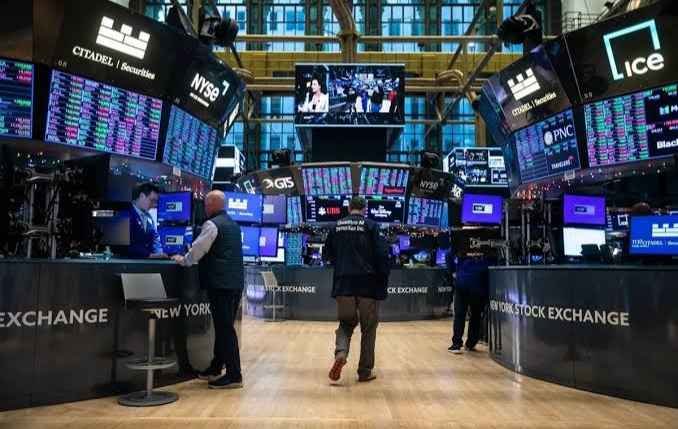Washington (TDI): A global stock market rout intensified on Monday following US President Donald Trump’s announcement of sweeping tariffs and Beijing’s retaliatory action with 34% duties on all US imports starting from April 10.
The Australian Stock Exchange 200 index plunged 4.2%, erasing $112 billion in market value and marking a 14.2% drop from its recent high.
Major stocks such as Commonwealth Bank of Australia (CBA) and Block experienced significant losses.
This downturn was largely attributed to China’s imposition of a 34% tariff on US imports, prompting fears of a US recession.
Read More: China Strikes Back at Trump’s Tariffs
Moreover, European stock markets opened with significant declines, erasing earlier gains from the year.
This marks the third consecutive day of global market disruption due to ongoing tariff-related tensions, reflecting widespread investor concern.
Despite the ongoing fluctuation in Market, the euro appreciated against the US dollar, indicating contrasting movements in currency markets amidst the trade uncertainty.
Notably, in the United States, early trading indicators suggested that markets would open over 4% lower, contributing to an over $6 trillion loss for investors over the past three days.
President Trump denied orchestrating the market sell-off, likening the economic upheaval to necessary “medicine” required to address deeper issues.
Top economic advisers reinforced that the market should not expect a bailout from the ongoing turmoil, which is largely attributed to the administration’s tariff-driven economic strategy.
Furthermore, stock markets across Asia plunged sharply, with investor sentiment collapsing as fears of a global trade war took hold.
According to the Analysts, more than $9 trillion in market value has been vanished out in the span of just two days, drawing comparisons with the 2008 financial crisis.
Economists have expressed concerns that continued tariffs, inflation risks, and weakening consumer spending could push the US into a downturn.
Analysts anticipate prolonged economic uncertainty unless significant policy changes occur, including potential Federal Reserve intervention and alterations in US fiscal policy.
Given the current market volatility, investors are advised to exercise caution and consider diversifying their portfolios to mitigate risks associated with ongoing trade tensions.
Areeba Kanwal is a contributor at The Diplomatic Insight and has passion for International Relations and diplomacy.



